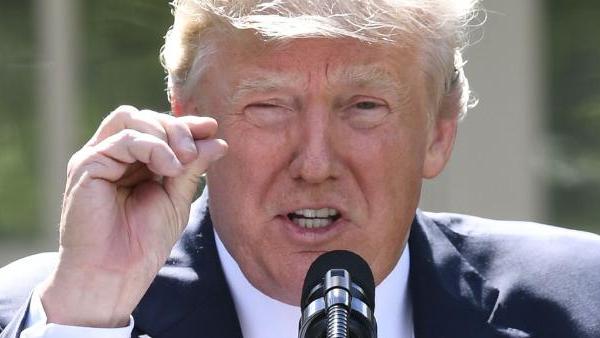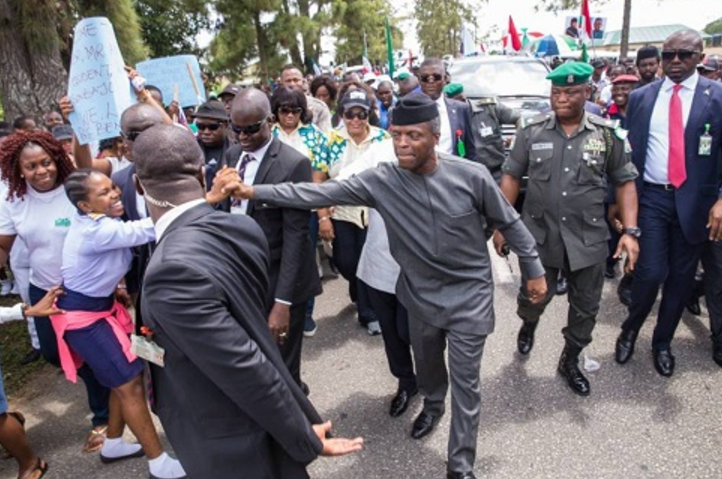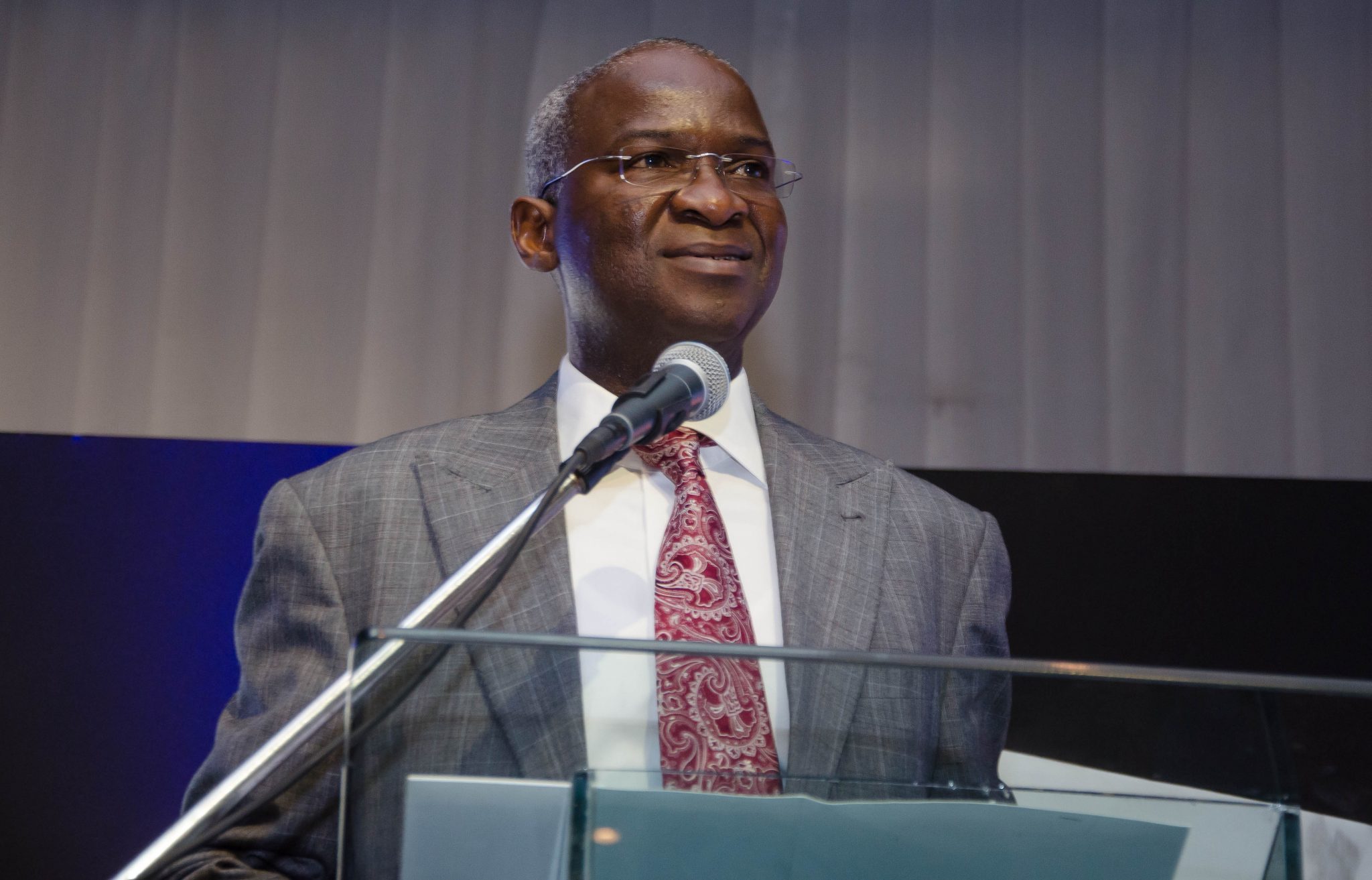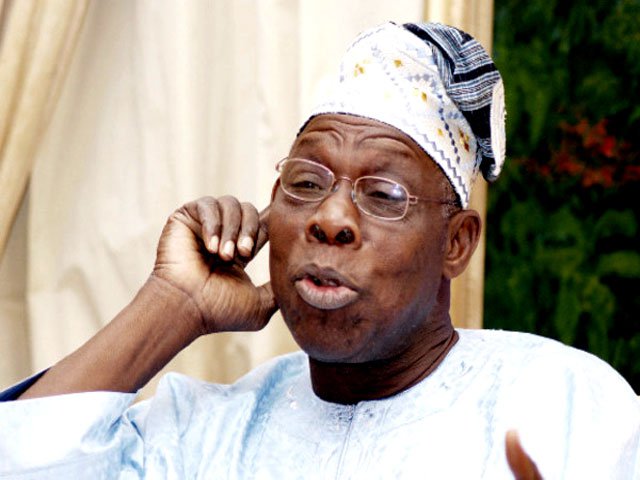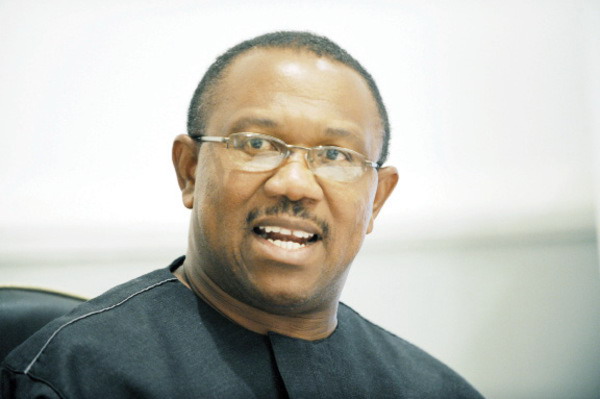“And think ye that building shall endure that
shelters the noble and crushes the poor”
– by James Russell Lowell.
INTRODUCTION
It is absolutely rife to analyze contemporary human societies from the angle of dynamic school of thought on developmental trend. From the time immemorial, the above truism has guided the traditional societies that operated within the capitalism cluster of wealth maximization. The widened societal gap in many societies was intensely pronounced between the rich people (that cornered more stake of societal wealth) and poor people (operating in developmental limbo by shunning the drive for wealth maximization). Consequently, various governments strategized to achieve wealth redistribution among their populace through temporary bridging of income gaps and provision of social welfare schemes intended for wealth re-distribution.
Many traditional societies officially resorted to using progressive income taxation in the attempt to redistribute income among their citizens. The jingoism of “the more you earn, the more you pay” and “pay as you earn” taxation was widely deployed to redistributing income among government officials and non-governmental salary earners. Furthermore, corporate tax was based on peculiar parameters aimed at measuring the operational fortitude of business organizations viz-a-viz their total incomes and profits before tax. However, the concept of ‘free trade and market’ in which both the rich and poor people operated has further fuelled the perpetuation of capitalist proclivity in our society.
The emergence of social class dichotomies between the rich and lowly people has been very pronounced in recent time. Even though apparent class differentials have been entrenched in the modern society, the attendant socio-economic and political shenanigans have left much to be desired. The widened gap between societal stakeholders was a serious source of concern which skewed societal development towards fulfilling the interest of rich people and to the chagrins of poor and downtrodden people. Therefore, erudite and rationally-minded people admitted that future socio-economic development cannot exist in isolation of governmental regulation of socio-economic, political and religious activities in modern societies.
Nigerian political scenario has over-played the above developmental assumption to the lowest extreme of developmental continuum. Few Nigerians have pursued the capitalist option through a dint of hard labor or direct involvement in legally sanctioned, high net-worth investment and economic activities with the capacity for high level regenerative income. Recently, most Nigerians capitalists are politicians and retired military officers who have made their wealth through looting machines of the public treasury. Most of them bulldozed their ways to political power when they have nothing spectacular to offer the public in terms of democratic dividends.
REALITIES OF NIGERIAN SITUATION:
Diverse issues of religious, political and socio-economic developments in Nigeria have been a major consideration for intelligentsia study of developmental specialists. This is important for educative appreciation that can address our national challenges and against the backdrop of exponential experiences of other developing nations of the world. Presently, proper identification of credible ways-out of Nigerian economic quagmires has become imminent in order to avoid the looming socio-political calamity. Again, understanding the long term effect of stylishly perpetuated leadership shenanigans and awkward followership mentality, unabated corruption and senseless wealth accumulation has become absolutely necessary for intellectual study. This will give room for proper understanding of Nigeria’s developmental retardation; a condition that has glaringly affected and debased the nation amidst plentiful natural resources.
ECONOMIC RECESSIONS:
Today, Nigeria’s monumental economic imbroglio had been deemed by myopic leaders as a passing face of economic recession which we hope will soon pass away and yield to a boom. The national economic recession cannot translate to a boom overnight when our leaders lack appropriate developmental knowledge to change the status quo. The economic recession had resulted from a cycle of leadership idiosyncrasy and resources non-convertibility know-how. We will have to face the reality of a gloomy recession caused by leadership recklessness, corruption and blatant maladministration.
How could a nation such as Nigeria blindly run into economic comatose with her array of natural resources? How could downtrodden Nigerians be faced with hunger and starvation despite her massive and rich arable farmland? How could Nigeria that is so blessed with many international acclaimed administrative technocrats come to the condition of hopelessness for lack of proper planning and economic direction?
The Nigerian political environment is presently heated and has not shown reasonable signs that we have learned a serious lesson that can assist in overcoming our nasty economic experience and regional politicking. Similarly, the Nigerian social environment has been confined to intense fear arising from religious fanaticism, senseless patrico-matricidal wars or unnecessary tribal agitations and grooming of disenchanted youths with unquenchable wits for flagrantly challenging properly constituted authorities. Unchecked level of unemployment, social welfare neglect, hunger and starvation have driven Nigerian youths to engage in criminalities on a wide scale such as prostitution, kidnapping for ransom, armed robbery, internet fraud, illicit drug abuse, international racketeering, etc.
After the above social vices, the mediation for our great future as a worthy commonwealth Nigeria has become very profound for discussion and developmental consideration under a revelatory and understanding climate. Only then can the lofty idea of a commonwealth Nigeria be nurtured for meaningful result under an intelligent and well-coordinated leadership with the honesty of purpose for national building. It will be utmost supportive to societal stakeholders if the entire citizens in proposed commonwealth Nigeria can judiciously yield themselves to the idea of ‘being-a-brother-keeper’. Rather than our continued survival under hitherto orchestrated socio-religious malaise, political resentments, sectional interests, sardonic actions and tribal relegations, the entire populace should appreciate their belongingness and contributions from other regions towards developing the nation.
In his own ‘learning curve’ and as a worthy leader, the former American president, Bill Clinton, said: “we need each other and must care for one another.” Similarly, the former Secretary-General of United Nations, Kofi Anan, said: “The variety of life on earth is to relieve suffering and raise standard of living of those who depended on us.” From the above classified statements of internationally recognized statesmen, it can be observed that political leaders in dynamic societies came to the full realization that they cannot continue to pursue egoistic trends, sectional interests and class stratifications for emergence of super-lords while their citizens were left to survive under deprivation, squalor and leadership neglect. Therefore, achieving leadership relevance in contemporary democratic societies has been a herculean task to achieve. Specifically, the strict observance of globally highlighted indices of growth, effective compliance with human rights and optimum neutral stuffs conversion have become the basis of good governance and economic development.
We can review our past history in Nigeria to determine the underlying reasons for our collective failure to one another when relevant issues of social responsibility are considered. This social aberration was glaringly imbued in nepotism, excessive religious leaning, tribal consideration and quota system when general issues of national concern are involved. Furthermore, when widespread egoistic pursuits among leaders and other extraneous considerations are elevated above efficiency and excellence in the public service, under-development becomes the outcome. The above ramshackle conditions have confined Nigeria to lowly recognition and poor rating among the comity of nations.
Both rich and poor Nigerians are not left out of displaying nonchalant attitudes to developmental ideas and social responsibility especially when they cannot benefit directly from them. Sound developmental ideas with the capacity to elevate the nation out her socio-economic quagmire are handled incorrigibly in a charade manner and disparaged partially or in totality. In a daring swift of hoodwinking eulogy, Nigerians seemed to have been acclimatized to debilitating corruption as a way of life and in such nonchalant manner that it has become the alternate national emblem. It is very sad these days that from personal activities to official responsibilities, people seem to expect one form of gratification or another to spur performances when they could have executed same responsibilities without unnecessary compulsion and inducements. Nigerians seemed to have subjected proper ethical convictions to developmental gallows while imbibing dubious tendencies to fuel the get-rich-quick syndrome. Furthermore, Nigerians have belittled their national consciousness for honesty and obliterate the consciousness to act reasonably while maintaining developmental structures. The negative social-political conditions that obdurately be-devilled Nigeria before the international community must be consciously disparaged.
Nigeria which was a former British Colonial territory gained her independence in 1960 under a peaceful condition and with great expectations for the future. The emerging group of elites who received the baton of leadership from colonial masters was deemed as ‘political saviors’ of their people. It was believed that they knew where their shoes pinch and would make needed amendments to move the nation forward. However, the premature expectation to drive the nation into socio-economic greatness remained majorly unfulfilled up to the present time. The dashed developmental condition eventually submerged our collective hope for a sophisticated nation that could have equaled that of our colonial master at the turn of the century.
The country with a population of over 150 million people comprised mainly of three major tribes namely; Igbo, Hausa and Yoruba. The nation consists of three major regions at independence – the East, West and the North and did not push for territorial extension to harness her neighboring nations since independence. Ironically, there has been intermittent internal rancor based on tribal and party-line formations. The dominant tribes have not really deployed required maturity to understand the nitty-gritty of cohesive survival in a multi-ethnic and religious setting like Nigeria. Instead of embarking on this arduous task for nation building, disenchanted people always throw tantrums at other tribes through accusations and counter-accusations on marginalization whenever political leaders were not elected from their political platforms or regions.
Today, there has been the perpetuation of tribal consideration, state of origin, religion, quota system, etc., in the scheme of national affairs when considerations are made for employment into federal establishments and national agencies. Also, allocation of national resources and reasonable sharing formula for political positions at federal level were jettisoned for preferential treatment. By so doing, organizational efficiency, operational competence, overall excellence, developmental strives, etc. were ignored while the nation is confined to under-development.
Adam Smith, the acclaimed father of modern Economics and Milton Friedman, his spiritual son, were not children born of the same parents and they did not originate from the same country. Their parents emigrated into United States of America and married while sojourning there without any local relationships whatsoever. In Nigeria, an Igbo specialist in a given profession is not accredited and recognized in Yoruba-land, and vice versa. This awkward call for sectional tribal elevation above others has not given room for excellence and professionalism. So also, technological breakthrough has been marginalized because exceptional innovators in one region are not officially recognized in other regions. The preferential treatment in nepotism and ignoring perceived competitors despite exceptional breakthroughs and compulsion of pull-him-down syndrome do not augur well for the national development.
The perpetuation of tribal jingoism “enjoying one’s turn to chop” by closely knitted groups of developmental Lilliput cannot augur for national development. It was explicitly stated in “China’s Second Continent”, a book written by Howard W. French, that group perpetuation of political power at the detriment of highly innovative intellectuals is a fundamental obstacle to achieve effective national developmental strategy. Such deliberate constellation of power in few hands of power brokers has resulted in re-circulating mediocre in high level political positions. The consequence is a deliberately machinated corruption, bad governance, widening of social gap between the rich and poor as presently observed in Nigeria.
It will be recalled that after the national independence in 1960, there was enough provisions for peaceful elections that would have kept the country together as an indivisible entity. Unfortunately, the fragile democracy did not last for long time because of traditional Nigerian approach to doing things. After the election of 1964, there was a breakdown of law and order, a condition which resulted in forceful and bloody overthrow of the then elected government by adventurous young military officers. That singular occurrence of military incursion into politics marked the beginning and end of our nascent democracy. This political incursion changed the face of governance in the nation to a new form of military-styled bravado without sympathy to public opinions.
Again, the perceived one-sided political purging during the said coup became the basis of religious and tribal hostilities across the nation. The national differences that could have been resolved through dialogues were pushed to the extreme of military diplomacy. The ultimate effect was an unnecessary Nigerian-Biafra war which involved all the regions and during which over three million lives were lost. Aggrandized regional bickering and tribal sentiments that led to the Nigerian civil war were mostly unresolved up to the present time. After the war, the tactical national program of “no victor, no vanquish” and the 3R’s (reconciliation, re-assimilation and reconstruction) was an inconclusive strategy. Thereafter, government nominations for topmost political positions benefitted the perceived subtle victors deemed to have military and political supremacy over other regions.
Ironically, this skewed official misdemeanor is still happening in Nigerian politics and administration till today. The aftermath of the civil war was a situation that further heightened tribal misconceptions and group distrusts especially, among developmental cynics. This situation was the major reason which led to military coups and counter-coups after the civil war. It was because of this developmental aberration that made erudite Nigerians close their ranks, come together temporarily in 1979 to denounce military coups and asked for a decisive return to civilian rule.
RECENT YOUTH AGITATION
The Niger Delta crisis started as a result of long time suffering and leadership neglect of people (indigenes) from that region. Crude oil was found in the Niger Delta and its accompanied revenues (foreign exchange) became the mainstay of our national income. Historically, the crude oil was discovered at Oloibiri in Niger Delta by 1956 and commercial production started in 1958. Since that time, Niger Delta people including the Ijaws and Ogonis were deprived of their mainstay occupation (fishing) because of incessant pollution to the rivers where they plied their trade. Also, they were forced to live in unhealthy conditions arising from exploration of crude oil which resulted to uncontrolled pollution. Hence, the local people started to agitate for their legitimate rights of survival in a friendly environment. To cap their injury with salt, they were ignored continuously by successive leaders and governments. This was the basis on which tribal violence erupted in a coordinated manner against oil installations and government interests.
Yet, our selfish leaders ignored their agitations and attacks, even though the entire nation depended on the foreign exchange income from the Niger Delta region. The local people observed the financial recklessness of Nigerian leaders and how they lived in affluence while the contrast was the case with them. They survived under unhealthy conditions and were forced to live in squalor unmerited of their rich natural environment. This group perception deteriorated remarkably with the emergence of Boko Haram onslaught which was also ignored by Nigerian leaders. Unfortunately, myopic leaders turned a blind eye to the emergence of Boko Haram and erroneously deemed the situation as a Northern problem.
Boko Haram had no history of long term agitation in the North Eastern part of the nation. However, the movement was highly orchestrated in a coordinated manner that showed a great national problem was in the offing. The “religiously masqueraded fighters” against all rules of reasonability and in the height of indecency abducted 276 Chibouk school girls within the age range of 16 to 18 years; a condition that caused national and international furors. To indicate that Boko Haram meant real war business, they recruited many young people as fighters, abducted various women and children of all ages that they forced to imbibe their religious ideology alien to the Nigerian culture.
The swift war monger (Boko Haram) was waived aside irresponsibly by our leaders who could not see beyond their noses. A spate of dangerous happenings never-witnessed before in the nation’s history (except during the civil war) relating to mass killings, targeted bombings and reckless plundering of law abiding citizens led to an international outcry on global news. The Boko Haram leader, Abubakar Shekau, proudly announced to the whole world that he had captured Chibouk girls as prisoners of war and would not hesitate to sell them off into slavery. In modern history and deep factional religious belief, the sale of slaves was open and there were rules guiding the treatment of such slaves – “The New Threats” by Jason Borke, page 152-153.
Karima Bennounce in his book, “Your Fatma Does Not Apply Here”, said; “Why I hate Al-Qaeda for a long time. Hatred is not a good thing. But I belief there are ideologies worth despising.” On the International Day of Peace in 2012 and with regard to a fundamentalist group responsible for the death of about three thousand people in Nigeria, Nigerian Nobel Laureate, Wole Soyinka, stated: “we have an organization which closes down schools, shoots faculty teachers and turn most of the North into an educational wasteland. How can we reach the children there?” We must first get rid of Boko Haram. Movements like Boko Haram and Al-Qaeda are bent on destruction of human beings and the only possible response is to abhor them, not the individuals but their collective organizations and what they do. It was Al-Qaeda that was responsible for the United States of America bombings on 9/11 and it was the same group that spread its fanatical ideology to Nigeria through the Boko Haram insurgence.
ISIS was born of Al-Qaeda and Boko Haram which kidnapped about two hundred and seventy young Nigerian school girls on the 14th April, 2014 because it believed that young girls should not be in school. Al-Qaeda had desired to acquire radiological devices, nuclear, chemical and biological weapons for active deployment to prosecute their perceived religious war. A 19-page page document was found by the United States of America which contained the message “The advantage of biological weapons is that they do not cost money while human casualties can be huge.” “If Muslims cannot defeat the unbelievers in a different way, it is permissible to use weapons of mass destruction, even if it kills all of them and wipes them and their descendants off from the face of the Earth.” In the book titled: “The Great War of Our Time.” written by Michael Morel and Bill Harlow, page 316 stated: “Abubakar Shekau was described as the Nigerian based leader of Boko Haram and a person of extreme volatile habitual mannerism and brutal leader.”
The major problem facing Nigeria is the downturn economy, religious crisis and nepotism. The present administration, headed by Retired Gen. Muhamed Buhari, has opened the window of opportunities for economic growth. Now that crude oil and other allied products including hydrocarbon have been discovered in other parts of Nigeria other than the Niger Delta, it is obvious that the World Bank and other economically supportive agencies will rekindle their interests and continue to finance oil exploration in the country. Hopefully, the nation will learn her bitter lesson from the consequences of unmitigated economic downturn caused by over-dependence on mono-exportable product (crude oil).
The dwindling foreign exchange income from the crude oil glut in global market has a negative effect on the national income. The downturn national income could not be mitigated by other veritable export earners as foreign exchange earner. Hence, the neglect of other veritable exportable products that can boost foreign income to support economic growth caused the national economic downturn. However, crude oil export will continue to be the major exportable ‘idol’. We must remember that to amass wealth while minding our expenditures with a focus on reduction of corruption is a credible strategy for Nigerian economic growth. Nigerian leaders must learn from their past mistakes that turned the Niger Delta region to volatile area of social crisis.
The time is rife for Nigerian leaders to provide for both the poor and the rich. There must be reasonable support for farmers, employees, public consumers, small business owners and provision for quality education, good medical facilities, reliable transportation system, drinking water, affordable homes, supportive infrastructures, etc. Nigerian leaders must expunge the unpopular government policies that have bedeviled the nation and plunged her to the depth of developmental cocoon. They should understand and imbibe various examples of developed countries that deployed reasonable economic strategies for noteworthy developments. One particular example is China presently driving the World economic growth and as well championing the welfare of human beings.
It will be recalled that China went from being a poor nation with an economy producing few goods for export and importing a little to become the factory hub of the world. This is an apparent developmental history capable of being studied for seeking appropriate solutions to our national challenges. Perhaps our national concerted effort for reasonable solutions was applied in the wrong direction. Effective study of other highly developed nations that once went through similar economic situations like ours and resolved their challenges can assist us in identifying reasonable solutions to our national challenges. Yet, the fundamental litmus test for American democracy, the then ailing economy, governmental approach, criminal justice system, educational standard, mass media and standardized culture, remains deeply intact.”
If we delve into history in order to examine few developed countries, we can learn from their structures, operational systems and particular cultures that can assist our economic growth. The Afghanistan is a typical area of cultural and religious conflict system similar to Nigeria. Unfortunately, we have not advanced our systemic approach for crisis resolution to overcome ethnic bigotries and tribal frictions and to decide positive developmental directions. We know how the Islamic military hijacked Afghanistan government; how religion and tribal conflicts became emerging threats to human values in the country. We cannot forget in a jiffy how privileged elites in Egypt hijacked political power horde of the nation and also how restless citizens rose up against Mubarak’s regime which turned the nation to one of the poorest countries in the world
Similarly, Nigerian leaders must study how Tibet tackles her poverty problem with deliberate introduction of new crop plantations and homes schemes. Timolthy Geithner, the great Economists once said: “economic growth is crucial for development and continuation of a democratic society in which all people can advance.” With the foregoing, we must assume that now is the time for the nation to plan her developmental strategies properly. A Russian, Mickhail Chigorin, also said: “a poor plan is better than no plan at all.” Furthermore, we must remember that in the midst of the Great Labour, Tolstoy wrote the famous: “War and Peace” to his wife and said: “God grant me health and peace and quietness, and I shall describe the battle of Bovodina as it has never been described before.”
If Nigeria can produce anything, either small scale machinery equipment or food items, then it follows in economics that “imperfect markets are better than no market at all.” It is admitted in history that “countries run by and in the interest of merchants have not been perfect but have always been more prosperous, peaceful and cultured than countries run by despots. This condition can explicitly explained in the assumption that the cheaper mobile phones become, the more that their manufacturers are sold.”
If Nigeria can continue with the current effort to reduce corruption, the nation will have a place and good record in the world. She will also compare favorably with emerging developing countries of the world. The nation must learn from the rise and fall of Argentina when she became the victim of “Misfensance, nonfensance malfensance” because of influx of foreign goods (money) – “The Lexus and the Olive tree”, and the “Electronics Herd” by Thomas Friedman. This was a time when Argentina spent more money than they should have, taxed less than they should have and borrowed more than they should have borrowed all for political benefits. Then, consider the famous song, “Evica – the money kept toling in from every side and … rolling on in, rolin on in”. Ben Bernaike, the former US Chairman Federal Reserve, once stated: “the world needs a government to make the country healthier, wealthier and a government that can guarantee that each person has enough to eat and a roof over his/her head.”
Economic development should not stop focusing on many areas that politicians have not been able to deliver creditably well. Areas of national neglect must be adequately catered for by emerging leaders who know their salt well. Important areas that citizens blamed on leadership evolution, religion affinity, tribe or place of origin, population growth and other issues that need urgent attention for growth must be put into proximate consideration. By so doing, leaders will achieve remarkable developmental feats and thereafter leave their footmarks on the sand of time.
Religion
There is no doubt that the nation’s economic depression will soon pass away to reflect blossom national economic prosperity. Just how can this economic growth affect the future of Nigeria since we are attuned to bad economic condition? Can we afford to go on forever with damaging effects of corruption and religious conflicts? It would appear that the government is turning a deaf ear to religious malaise and widespread resentment that are escalating to uncontrollable level in the nation. If they allowed beyond this present stage, the socio-economic situation presently experienced may be a child’s play to future happenings. At that time, there may be more sophisticated warfare and destructive military equipment deployed for military actions with damaging consequences. Then, the situation will be too hopeless to handle by our leaders with their low level crisis resolution and relationship management approach.
Religious conflict is a worldwide acknowledged problem but in our situation, we cannot afford to fold our arms and allow it to consume us. We must examine how other developing countries with similar crisis resolved theirs. Indonesia has a population of 250 million people; estimated 100 million more than the Nigerian population of 150 million. The country is made up of 17,500 Islands that speak more than 700 languages and led by president Subarto. Indonesia is a country with almost 90% Muslims in addition to other religions. The leadership system allowed both Christians and Muslims to build Mosques and Churches side by side without molestations. In spite of the overthrow of Subarto in 1998 and at a time when the world predicted that Indonesia would burn and fall apart, Indonesia remained intact as a nation. On the contrary to the above prediction, Indonesia became stronger and well united.
The first free legislative election in Indonesia was held almost 40 years after her independence. With 90% of the total population being Muslim, the Islamic party scored only 44% of the vote cast in the general election. Similarly in 2014, the presidential election was held in the country with about 135 million votes cast at 480,000 polling stations and this resulted in the peaceful transfer of power. Indonesians are very tolerant of each other; both the military and civilians population live peacefully together without rancor and frequent disturbances. The greatest virtue of Indonesia people is “tolerance”. The former American Secretary of State, Hillary Clinton, visited Indonesia in 2009 and commented: “If you want to know whether Islam, democracy, modernity and women’s rights can co-exist, go to Indonesia.”
In 1998, New York Times wrote that Indonesia was “facing most of the dangerous years in its history” and predicted that with the strong man gone from leadership scene, “the nation would burn.” Today, against all predictions, Indonesia did not burn to ashes but remained indivisible and as strong as ever. It remained as a Southeast Asia nation with volcanic Islands, lovely beaches, perfect sceneries, deep jungles sheltering elephants, tigers, etc. It remained a beautiful and peaceful country to visit by international tourists. Nigeria should learn from Indonesia especially on adopted strategies that made her survive the religious difference.
WordPress: Okunrinboyeolu.com
Washington DC
27th May 2017
This article was specially written to commemorate the children special day of May 29, 2017. Our children are encouraged to strive for ideals of leadership relevance and good governance as they grow because they are our leaders of tomorrow.
